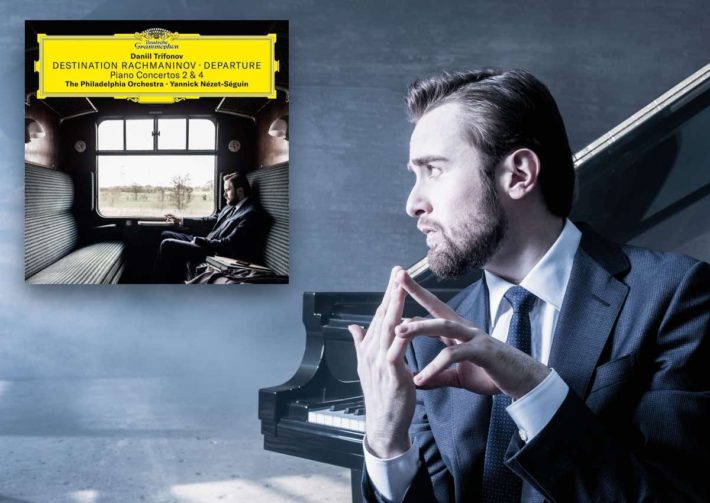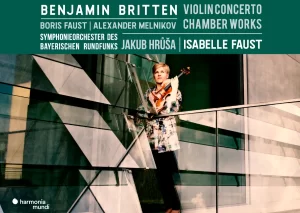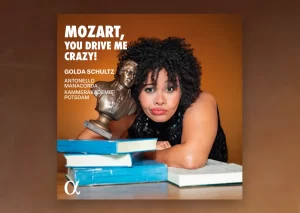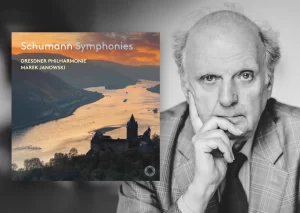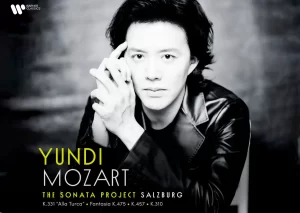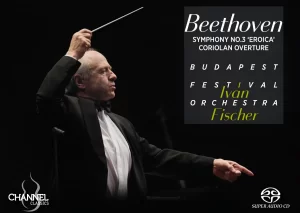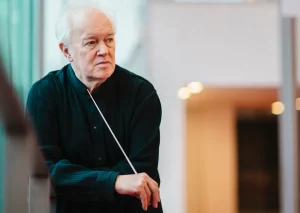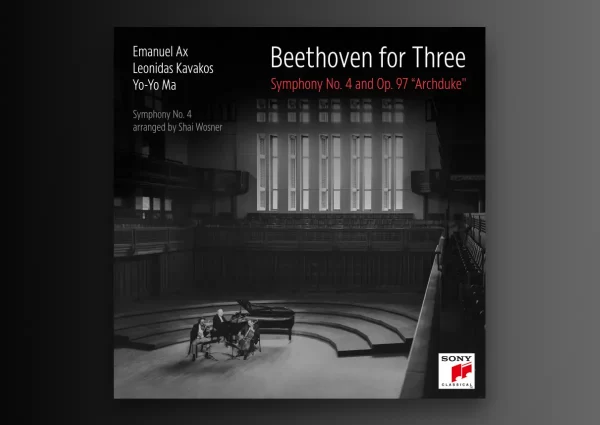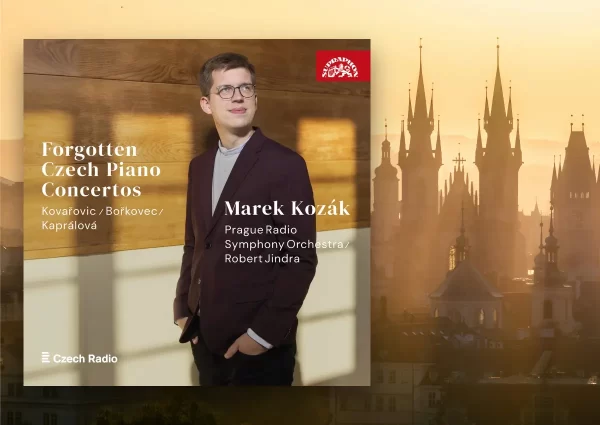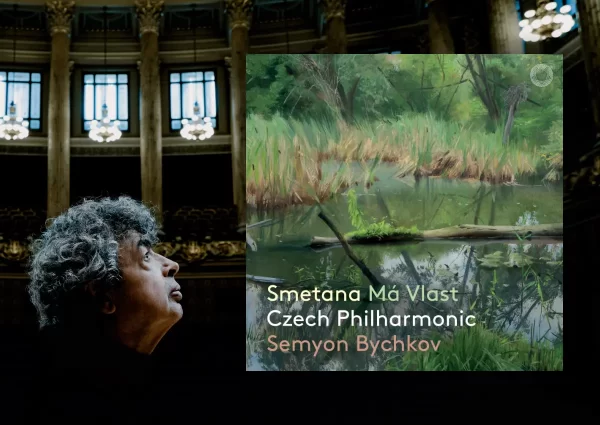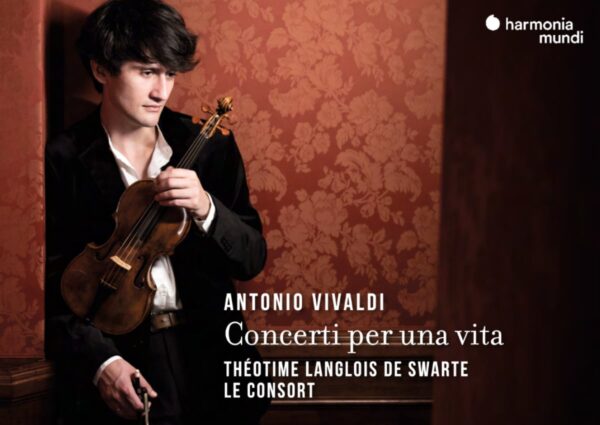Following their much-praised release of Rachmaninov’s “Paganini Variations”, Daniil Trifonov, the Philadelphia Orchestra and Yannick Nézet-Séguin start with what will become a complete cycle of the Rachmaninov Piano Concertos. This release includes the famous Second Concerto, along with the less popular Fourth, the later recorded live in Philadelphia.
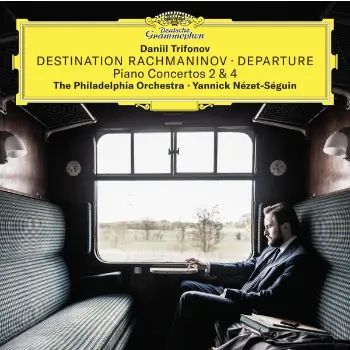
See offers for this album on Amazon.
The Second Concerto is a highly energetic, fully charged performance. Trifonov pushes forward from the first bar, and the Philadelphia Orchestra is right along with him. The Phillis have their unique connection with the Russian composer, having worked with him extensively while he was in a practically forced exile in the states, and his own legendary recordings of the concertos were made with this orchestra. Is there still a hint of the late 1920’s and 1940’s sound to the ensemble? Some say their sharp yet warm strings sound is part of their DNA going back to the Ormandy era, and it shines through here as well. Time and again, the orchestra’s contribution to these performances is indispensable, with small touches rarely heard in other versions.
Hear for instance the delicate dialogue and accompaniment of all parties at 3:50 in the first movement. They do a jolly good job following Trifonov intricate tempo changes, which to me never sound out of place, serves the music’s statement in full and never mannered. If one goes back to the composer’s own version under Stokowski (RCA), his attitude toward rubato as a tool to increase the intensity of musical phrasing is very reminiscent of Trifonov’s.
Speaking of the Rachmaninov version (1929), his slow movement is one of the greatest recordings of all time, mainly because of his beauty of tone and heart-warming simplicity. Trifonov’s approach is more direct, more outward. It’s not as moving, but highly effective when listening as part of the whole concerto. What occurs in 5:00 at this movement is a good example of pianist and conductor masterful control over tempo changes – The peek of the musical phrase is emphasized with slowing down, holding all the weight, while right afterward the pianist takes us back to the original tempo with his solo re-entering. On other performances, it would have sounded too “romanticized” – here it sounds just right.
The third movement finds Trifonov, the Philadelphians and Nézet-Séguin at their most energetic – with a cost. This is the only movement in this album where at times the partners are not entirely in sync (0:30), though Trifonov’s virtuosity and the players enthusiastic soon make you forget about this tiny details. I liked very much the pianist’s handling of the famous second subject, played with a forward-moving energy rather than dwelling over it like in so many other performances.
In sum, it’s an energetic, very nicely done and fully “live” Rachmaninov Second, even under studio conditions. Competition is so fierce these days that why should one even bother to compete – But I will mention Rachmaninov’s own version as a point of reference, Krystian Zimerman (also on DG) impressive pianism, Lugansky and Orano with the CBSO for their almost chamber-like collaboration, and a hidden jam – Barry Douglas, the LSO and Tilson Thomas for their delicate, mature and penetrating account. Trifonov in comparison has an irresistible energy, and is also very well recorded.
If you heard some hidden treasures in the Second Concerto’s score, then you’re in for a treat in this version of the Fourth, maybe even more impressive a performance than the second. One has to admit the piece’s small weaknesses; It’s not as accessible, seductive or well-organized a composition as the other three concertos, but it certainly can’t be dismissed or ignored for lack of originality. Trifonov and his partners are fully committed to this somewhat enigmatic concerto, the same high spirit coming through even more here (maybe due to the tension of the live recording). Trifonov emphasis of rhythmic elements within phrases makes this a fascinating version – hear for instance his off-bit left-hand staccato at 3:50 in the first movement, or his building up the tension with the brass and woodwind sections from 5:00 onward.
The Fourth’s second movement is perhaps sentimental to a fault, but Trifonov direct, almost muscular handling of it and the orchestra’s warm string accompaniment work extremely well. It’s not Michelangeli’s serenity as heard in his legendary EMI version, but very nicely done indeed. The outburst in the middle of the movement and the exit of its entanglement is another example of the masterful collaboration between soloist and orchestra.
The third movement is perhaps the most problematic and maybe can be partly blamed for the relative lack of popularity of this interesting concerto. What strikes the most of Trifonov and Nézet-Séguin’s version is how modern it can sound in the right hands – finally you could hear Rachmaninov looking forward to the 20th century rather than looking back to the 19th – listen to 0:55 and elsewhere and you could swear hearing hints of Prokofiev and Shostakovich. You rarely exposed to these connections on other versions, if ever.
The fill-up in this album is Rachmaninov’s arrangement of 3 movements from Bach’s Violin Sonata No. 3. It’s well played and wisely placed between concertos – It makes you want to hear some original Bach from Trifonov one day. The next installment with Concertos No. 1&3 is coming within a year. This release makes it highly anticipated.

DESTINATION RACHMANINOV · DEPARTURE
Rachmaninov – Piano Concertos 2 & 4
Daniil Trifonov – Piano
The Philadelphia Orchestra
Yannick Nézet-Séguin – Conductor
Deutsche Grammophon, CD 0289 483 5335 4

See offers for this album on Amazon.
Included with an Apple Music subscription:
Latest Classical Music Posts
Read more classical music reviews or visit The Classic Review Amazon store
Follow Us and Comment:
Get our periodic classical music newsletter with our recent reviews, news and beginners guides.
We respect your privacy.

